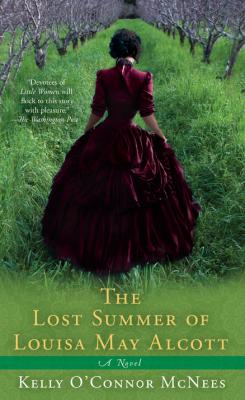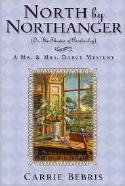This review contains affiliate links, which earn me a small commission when you click and purchase, at no extra cost to you. Thank you for supporting my small business and allowing me to continue providing you a reliable resource for clean book ratings.
Louisa May Alcott was famous even in her lifetime for her novel Little Women; she also wrote many other stories and books. It is known that she never married. But what is not known is if she ever fell in love. Her letters and journals never mention a love affair, but since biographers have noted “that Louisa had a habit of burning letters,” it’s certainly possible she knew love and was sure to “edit” proof of it from her papers. Knowing this, author Kelly O’Connor McNees imagines a great love for Louisa the summer she and her family spent at a relative’s house in Walpole, New Hampshire.
McNees has Louisa meet Joseph Singer, a young man working in his family’s dry goods store. Louisa finds herself attracted to the handsome, well-read Joseph, but she heartily resists the impulse because of her strong desire to be independent. Even at the young age of 22, she’s already had a book of stories published, and she fully intends to move to Boston after the family’s stay in Walpole to start a life of writing full time. Part of her desire is to escape the life of poverty brought on by her philosopher father’s resistance to engage in commerce (therefore leaving the family dependent on the charity of family and friends), but much of it is her strong will to just write.
Eventually, Louisa is able to admit to herself and to Joseph that she does love him. But complications arise in his life, and she still insists it would be impossible for her to be married and engaged in domestic duties and pursue her writing life at the same time. Readers know their story cannot have a traditional “happy ending,” so it is bittersweet to see Louisa have the opportunity to know love even as she chooses her independence.
McNees did a great deal of research, immersing herself in Alcott’s personal papers and books, and she does a good job of “getting inside her head” for this imagined summer. Those who love Alcott’s writing will most likely enjoy this book, and those who know little about Alcott will still enjoy this story of love and opportunities lost and found.
Rated: Mild, for a few uses of God’s name taken in vain, and an understood sex scene with no details.
Click here to purchase your copy of The Lost Summer of Louisa May Alcott on Amazon.




